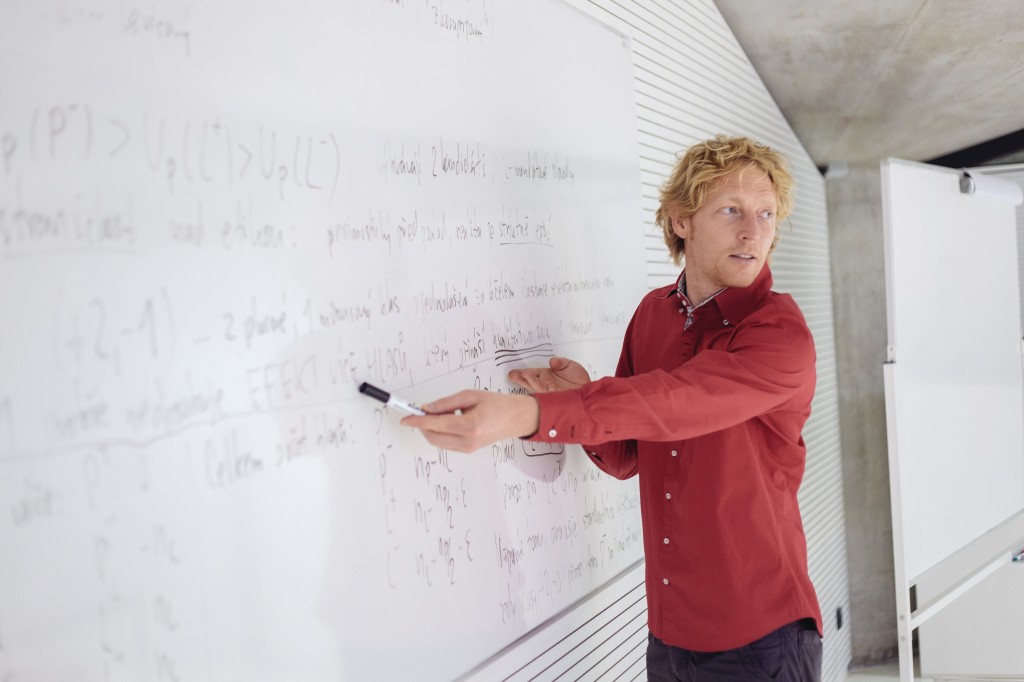We interview Karel Janeček, a genius of creative finance, who decided to fight corruption in the Czech Republic with a revolutionary electoral system. “D21 can be understood as a change from “DOS to Windows”. Once implemented, it will bring a qualitatively better selection of leaders and democracy”
The Carrera Panamericana 2014, a three thousand kilometre rally in vintage cars through the dusty streets of Mexico, was followed by the orange flowers falling from helicopters last May: a high-flying “yes” in the skies of Příbram, central Bohemia, to sanction his second marriage, this time with Mariem Mhadhbi, an engineer of Tunisian origin known in Paris. They could seemingly be the opening words of one of those newsflash or paparazzi stories following the latest nouveau riche guy, but Karel Janeček, the young Bohemian billionaire, should not be considered a weekly news magazine character. On the contrary, he is a very active citizen from a economic and social perspective (in short: politically) in the country. Born in 1973, a child prodigy in mathematics, with a rigorously “casual” style, between the old and the new millenniums he cleverly emerged to join the new class of “winning” entrepreneurs of the Czech Republic.
A leading example of someone who has taken advantage of the neo-liberal revolution of the globalized economy, having adapted his skills as a researcher (PhD at the prestigious Carnegie Mellon University in Pittsburg) to the financial market. In 1994 he created the RSJ Algorithmic Trading, which within a decade would become one of the main companies in the world in the field of “futures” contracts, and other derivative instruments, with a turnover of over one billion crowns. Yet he refused to rest on his laurels: a good mathematician knows that the rules must be clear and the same for everyone. A sense of justice that led him to intervene personally in an attempt to solve a particular problem of his native country. He has reached a high enough level of international fame to have recently been added to the list of “28 names from 28 countries that are forming, affecting and changing Europe” written by the magazine Politico.eu.
 “I’m the one who stirs the pot of the Czech goulash”, is how Dr. Janeček presents himself in this interview. What ruins the national dish, according to him, is a single factor – corruption. It is hard to argue with the statistics at hand. For the international NGO Transparency International, the Czech Republic last year was ranked 53rd out of 175 states studied. In the European Union it is in the group of countries with the highest perceived corruption, with Italy, Greece, Romania, Bulgaria, Slovakia. The improvements from previous years are few or non-existent, and unfortunately the phenomenon is well-rooted.
“I’m the one who stirs the pot of the Czech goulash”, is how Dr. Janeček presents himself in this interview. What ruins the national dish, according to him, is a single factor – corruption. It is hard to argue with the statistics at hand. For the international NGO Transparency International, the Czech Republic last year was ranked 53rd out of 175 states studied. In the European Union it is in the group of countries with the highest perceived corruption, with Italy, Greece, Romania, Bulgaria, Slovakia. The improvements from previous years are few or non-existent, and unfortunately the phenomenon is well-rooted.
In 2009 Janeček launched the Nadační fond proti korupci (NFPK), an anti-corruption endowment, presenting himself to the public as a defender of legality; up to today he is satisfied with the work done. In their various activities, are prizes awarded to those who stand out in the fight against this malpractice. Among the last people awarded with the “Courage Prize”, were former vice-minister of finance Lukáš Wagenknecht, for his moral integrity in denouncing fraud involving the use of European funds, integrity which was followed with a controversial dismissal from the government. “To me, the major success of NFPK is the fact that we managed to raise public awareness of harm of corruption and spurred the demand of public for more transparency and fairness”, he says. The project is a rather particular one for the Republic, where the struggle for justice, at least financial, comes from a millionaire. As far back as early 2013, we were already discussing the sheriffs of anti-corruption, at the time Karel Janeček was accompanied by Radim Jančura and Andrej Babiš. The three have found fertile ground to invest in another type of capital – political. If Jančura, however, has continued in his role as an entrepreneur (a transport tycoon), Babiš has set in motion his “clean” face notoriety act, though not without the help of his impressive Citizen K. communication tools, for a career in which today he still works as Minister of Finance, leader of the party ahead in the polls, ANO.
Janeček had a different idea. “After over a year of existence of NFPK I could see that corruption, while being a major problem, is a consequence of a bad political system, rather the primary source. The root of the problem of the Czech Republic is the poor quality of selection of leaders and politicians. In early 2013 I started working on and I proposed a voting system with a minus vote to improve the existing one. The idea of the effect of multiple votes I got in May 2013. I named the voting system Democracy 2.1”. The key to the vault is there, it is the instrument that defines the results. Italy has a long corrupting tradition with nothing to “envy” from the New Europe, as we point out, and the data of Transparency International rank the Bel Paese in an even worse position (69th). Although the electoral law has changed several times over the past twenty years, the phenomenon resists. Is it not, perhaps, a question of political culture?
Janeček does not agree and says with the simplicity of a safe seller of his own merchandise, “When you changed your electoral systems you did not have Democracy 2.1 at disposal”! It is therefore time to explain exactly what it is: a new law that increases the options of the citizens’ vote. The old rule of “one voice, one vote” is being replaced by multiple choices where you can assign four “positive” votes and one “negative” vote, nominal votes in lists which are not blocked by the parties, in order to discredit politicians suspected of malfeasance, even when they manage to maintain strongholds based on patronage.
Janeček proposes an analogy of the computer revolution, “D21 can be understood as a change from “DOS to Windows”. Once implemented, it will bring a qualitatively better selection of leaders and democracy”.
A multiple choice approach would tend to maximize the results of the moderate approaches (more shareable by the majority) and diminish the alternative parties. From one point of view, as the promotion of D21 emphasizes, it reduces the scope of the parties with extremist and radical positions; but from the other, it is likely to diminish the alternative proposals. We also find the aversion of the interviewee here, “D21 will weaken extremists by giving an extra strength to democratic parties. At the same time, [the multiple vote] will enable new ideas to emerge”. With the (usual, and maybe necessary) no-nonsense face of a social entrepreneur, Karel continues, sure that the system has proved its worth, “I believe not only in a large-scale diffusion in the Czech Republic, but also all over the world, followed by an upgrade to a new, qualitatively better level of democracy in all countries”. In order to overcome the doubts that his enthusiasm cannot dispel, we will need to wait for a political test of the system. So far it has worked, and generated a more than positive reception, in decision-making processes in different countries, from choices on education planning in some Bohemian regions up to the districts of New York city that use D21 to share budget choices. However, for the political choices, with Tunisia looking set to be the first candidate country for experimentation very soon, add a much more complex extra dimension. An example described as “winning” on the site of Democracy 2.1 concerns a simulation of the last Czech elections in which the Green Party would have been able to enter parliament (currently it is excluded) because many “green” issues arouse interest among other voters, while the Communist Party on the other hand, would have half of the seats. Yet a major vocation which reduces the voice of a party considered “extreme” risks missing the objective analysis. We should wonder why more than 10% of Czechs continued to vote for the party, rather than giving them a small space “as if they were worth less”. The stigma of diversity is a very sensitive issue, and the just struggle against corruption could bring contraindications with it that we do not find in the D21 advertising leaflet. It is logical to think of the near future in which the strong waves of migration will include diversity that is not so easy to digest, as already highlighted by the political controversy surrounding the management of the crisis. Janeček is outspoken as usual. “President Zeman is a populist and a shame for the country, certainly the future is in the integration of migrants, but the wave of xenophobia and anti-Islam feelings is a common problem throughout Europe. However, any future citizen must be responsible for their actions in the host country, who must learn and respect customs and traditions. “Spontaneous” multiculturalism has failed”.
by Giuseppe Picheca









